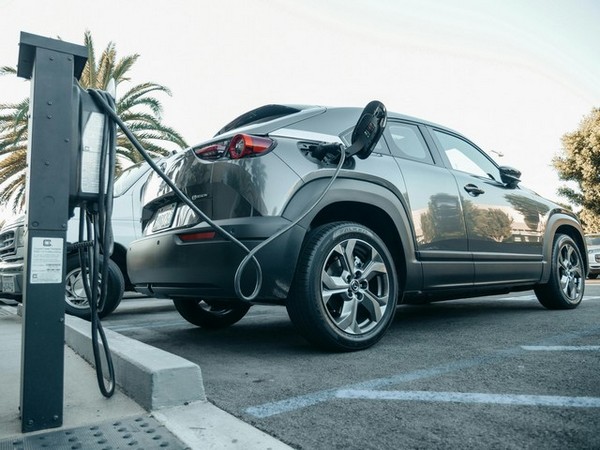India’s automobile sector is undergoing a transition towards electric vehicles (EVs), hybrids, and plug-in hybrids, as highlighted in a report by Elara Securities. The report emphasizes that a combination of these technologies will drive the country’s shift towards cleaner energy solutions, instead of solely relying on electric mobility. The Indian EV market has seen significant growth, with global EV sales reaching 14 million in 2023 and India experiencing a 90 per cent growth rate. The government aims for 30 per cent EV penetration by 2030, supported by expanded charging infrastructure, advanced battery management systems, and the introduction of new EV models.
Gaurav Gupta, Chief Growth Officer at JSW MG Motor India, predicts that around 200,000 chargers will be needed in the next 5-6 years, with one charger for every 50 vehicles. By 2030, connected car adoption is expected to reach 75-80 per cent, while ADAS adoption should hit 45 per cent, making BEV acquisition more attractive. The report also points out that software-defined vehicles (SDVs) are a key trend shaping the future of the Indian automotive sector, as they offer advanced features and services that can be monetized. OEMs are shifting their business models from hardware-focused to software and smart solutions-driven operations to capitalize on these trends.
Bevin Jacob, Partner & Co-Founder of Automobility, highlighted the value that OEMs are extracting from smart solutions by incorporating cutting-edge technology and providing connected services to consumers. He mentioned that on-demand mobility services, powered by internet connectivity, electrification, autonomous driving, and mobility-as-a-service, represent a transformative development for the industry’s future. The report indicates that India’s automotive sector is on the brink of a significant transformation, driven by technological advancements, collaborative efforts, and a strong push towards sustainable mobility. The shift to clean energy will be facilitated by a combination of EVs, hybrids, and plug-in hybrids, supported by a localized production ecosystem and smart solutions.
Overall, the Indian automobile sector’s move towards cleaner energy solutions is multifaceted, with EVs, hybrids, and plug-in hybrids at the forefront of this transition. The sector is likely to witness significant growth and innovation in the coming years, fueled by advancements in technology and a collective effort towards sustainable mobility. As the industry adapts to changing consumer preferences and regulations, OEMs are focusing on incorporating smart solutions and advanced technologies to meet the evolving needs of the market. With a strong emphasis on electrification, connectivity, autonomy, and mobility services, the future of India’s automotive sector looks promising and aligned with global trends towards clean and sustainable transportation.










